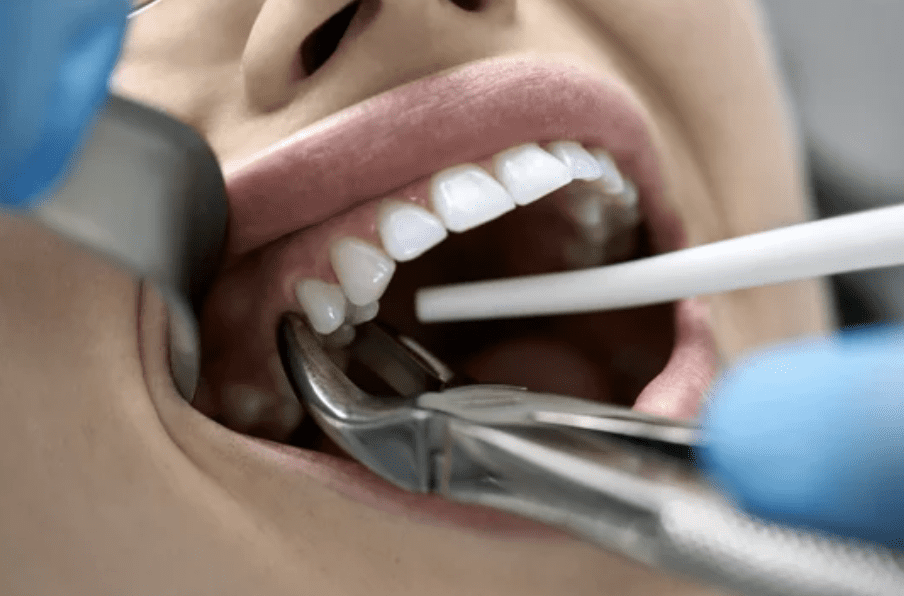A tooth extraction may sound like a terrible procedure, but it is one that dentists perform regularly. While it isn’t the most pleasant process, it should help relieve some pain you are experiencing. Plus, you won’t feel any pain during the procedure thanks to sedation and anesthetics.
Since it is far better to have your natural teeth, dentists will only extract a tooth unless it is essential. Here are some common reasons why you may need an extraction.

Tooth Decay
Advanced tooth decay may create the need for an extraction. In the first stages, tooth decay begins as a small cavity in the enamel. A cavity is a pit that forms in the protective outer layer of the tooth. Unfortunately, you may not feel any initial symptoms until it progresses further.
Unless you can see the discoloration, a dentist or dental hygienist may catch it during a routine cleaning. Otherwise, you may begin to feel sensitivity to temperatures or sugar. As it continues to grow, you will feel more pain and discomfort.
If a cavity goes without treatment, it will continually advance. As a result, the cavity can burrow into the pulp, which houses the nerves and blood vessels. Consequently, you can develop an infection. If antibiotics don’t work, you may need a root canal. However, you may still need a tooth extraction. This is to halt the infection before it spreads.
Gum Disease
Gum disease is an infection of the soft tissues around the teeth. Much like tooth decay, the beginning stages of gum disease are mild. This means that you may not notice some of the early signs and symptoms, which include inflamed or bleeding gums.
As gum disease progresses, it will gradually destroy the soft tissues that keep your teeth in place. Eventually, your teeth may loosen, making it likely that they will fall out.
With advanced gum disease, you can lose your teeth. The gums become infected, and this can spread to other parts of the gums and into the jaw bone. The bone supports your teeth, and the gums and connective tissues keep them in place. Once these are affected, your dentist may need to extract one or more of your teeth.
Wisdom Teeth
A common need for extraction is due to your third molars. Another name for your third molars is your wisdom teeth. Unlike your other permanent teeth, your wisdom teeth don’t erupt through your gums until your late teens or early twenties. Most people don’t have room in their mouths to keep their wisdom teeth when they erupt. Therefore, a dentist will recommend surgery to remove your third molars from your top and bottom jaw.
If you leave your wisdom teeth, you run the risk of them significantly altering your bite pattern. Also, your wisdom teeth may become impacted. This means that the teeth do not grow correctly. Wisdom teeth can develop sideways or diagonally, which impedes their ability to erupt from the gums fully. Therefore, your dentist will need to remove them.
